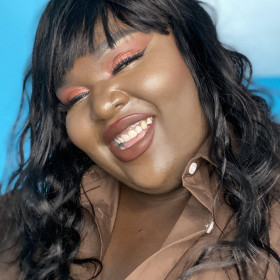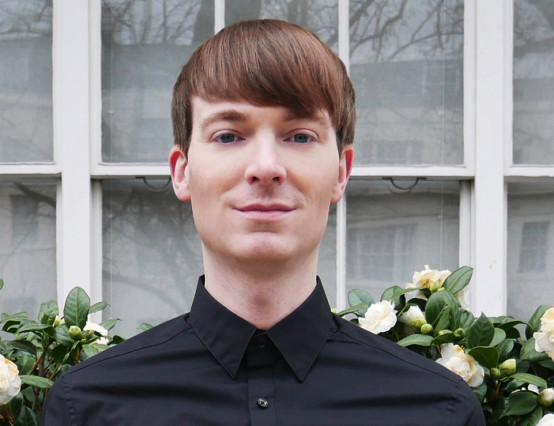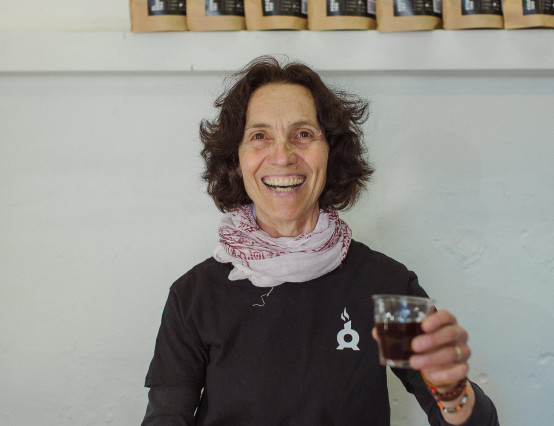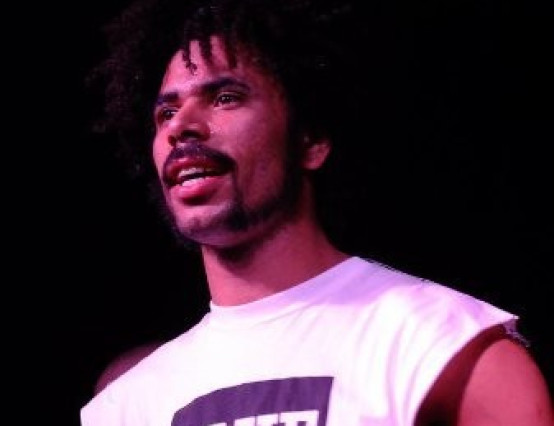‘The New York Times Presents’ has recently released a documentary called Framing Britney, responding to the recent #freebritney movement. Britney Spears was the last celebrity I thought would be caught up in a devastating situation that has the whole world talking – again. The singer has had her fair share of tragedy plastered across newspapers and magazines all over the world, and although her story should have probably ended there, it turns out that was just the tip of the iceberg.
The case at hand
Courtesy of her father, Jamie Spears, Britney has been locked in a conservatorship for 12 years, where her father has total control over her person and her estate.
In case you are unfamiliar with the concept, a conservatorship is;
‘a legal concept in the United States. A judge appoints a guardian or a protector to manage the financial affairs and/or daily life of another due to physical or mental limitations, or old age.’
The controversy comes from the fact that, despite her problems, Britney is of sound mind, and can – and should – regain responsibility for her own affairs. When the conservatorship was first implemented, Britney didn’t fight it, as she feared it would further stop her from seeing her children, who were in the custody of ex-husband, Kevin Federline. She simply wished for it to be controlled by an impartial party. Britney may have had every right to be afraid, as shortly after the conservatorship took effect, Britney was once again able to see her children.
The #freebritney movement was started by activists supporting Britney’s freedom, calling into question the effectiveness and necessity of conservatorships as a whole, when, in this case, they are working against their actual intention. For 12 years, Jamie Spears has had the final word on nearly every aspect of Britney’s life, specifically her work and her finances.
It is unclear whether Jamie Spears tried to fight Framing Britney being made, but neither he or Britney appear in the documentary in any form other than archival footage, and speculation as to whether Britney even received the request is circling. Still, with or without her, the documentary is made with true diplomacy and serves to provide the facts to a highly guarded situation that has the world on the edge of their seat.
Where it began
The documentary starts by telling the story of where Britney came from. She was born and raised in Mississippi, Louisiana by her doting mother, Lynne Spears. Although Britney’s alcoholic father Jamie Spears was present, and did contribute to her pursuit of following her dreams, he played no real part in her upbringing. If the documentary is anything to go by, he was there when he wanted to be, not when he needed to be. This alone makes the fact that he has so much control over her now, even harder to comprehend. It looks as if Mr Spears was in the right place at the right time to swoop in and play the saviour, masking an ulterior motive.
Framing Britney goes on to revisit all the key moments in Britney’s life that led to the conservatorship. Having not revisited Britney’s story myself since childhood, where I saw her life unravel before my eyes through the pages of magazines like OK and Heat, the disturbing reality of Britney’s life makes for some very uncomfortable viewing.
From intrusive interviews from the likes of Matt Lauer (who was brought down by the #metoo movement) and Diane Sawyer, Britney got heat from everyone she spoke to. Headlines screamed ‘MELTDOWN’ followed by a bald Britney slapped on the front page of newspapers such as The Daily Mirror; it does not take a genius to understand how America’s sweetheart ended up the way that she did.
There IS such a thing as bad press
The documentary featured several notable people who support the #freebritney movement and provided insight into who she actually is as a person. Felicity Culotta, out of all those featured in the documentary, seems to be the most reliable source for Britney’s character. Starting as her assistant in the early years, Felicity travelled with Britney when she was touring the world as her mother had other children to raise. Culotta was demoted to backstage tour guide when Jamie Spears began to control Britney’s estate under the conservatorship. Culotta’s perception of Britney tells a very different story from what we all know, and there is no reason to doubt Culotta’s account. She knew the girl the world once loved and then watched them tear her apart. She hopes that one day Britney will have the strength (or permission) to share her story firsthand – a hope that Culotta is not giving up on.
Framing Britney made room for several notable paparazzi members, whose jobs existed solely to capture photos of the star. Listening to their accounts of their pursuit of Britney was infuriating to watch. It’s fair to say that Brittain Stone, celebrity photographer for US Weekly, and Daniel Ramos made a more than sizable income from providing tabloid magazines with photographs of the star at all stages of her life. These two, in particular, have probably successfully documented her demise in photographs between them and yet, although to the audience this is a clear contribution to her troubles, in Framing Britney, I saw not one ounce of remorse for their actions.
From the archived footage of Britney’s interaction with the paparazzi, she played along at first, but when she needed space, it was very clear from her body language, and more importantly, her words. Yet, they persistently hounded her, shamed her, framed her in unpleasant ways that led to headlines questioning how fit of a mother she was, her mental stability and more. People believed what they did about Britney because of the images people like Stone and Ramos captured. In Framing Britney, they sit there, indifferent to the idea that they are partly responsible for her demise. Now without hearing it from Britney herself, this is purely speculation, but I’m sure Britney taking an umbrella to Ramos’s car is indication enough that they were, at one point, part of the problem.
The target on her back
Britney rose to stardom in the age before social media; the tabloids and her music were all we had as insight into this mega pop star. However, nobody really knew her, and Framing Britney proved that on a devastating scale.
Rising to fame when the American glitterati was not looking for a female slayer, you could say sealed her fate from the start. She came to light in the era of boy bands; any girl that did break through that wall of group choreography, bromance and jeans that were too tight was going to cause a stir, and that is exactly what Britney did. Here we have a teenage girl with a dominating presence, and who owns her body when sex was only starting to be a free topic of conversation. She made for intoxicating headlines but made for an even easier target.
Wesley Morris, a critic at the New York Times, said, ‘It’s not the sex part that seems cool, it’s the control and command over herself that seems cool.’ As a young girl, I was a fan of hits like ‘Oops I Did It Again’ and ‘Hit Me Baby One More Time’ not because I was attracted to Britney as a sex symbol, but because she gave young girls a form of liberation and freedom that, even as young girls, aren’t told that we can achieve. That freedom is something young girls then crave, and with no open and honest conversation about sexual freedom available, they turn to figures like Britney who seem to achieve it with the utmost of ease. Instead of attacking revered stars because of such things, we should be looking for other ways to empower young girls, so they don’t have to look to people like Britney for those answers.
No magazine, newspaper or talk show host wanted to discuss anything but this barely legal teenagers’ breasts, and virginity. The hypocrisy that surrounded Britney is quite incredible. You have grown women – mothers even – saying on a public, well-rated platform that they would shoot Britney if they could because of the influence she has over their children. Yet I see no threats being made from angry mothers, fathers, brothers, or sisters about a fully grown man asking a teenager about the status of their virginity on prime-time TV. It’s absolutely fair to say that had Britney been a boy, we would not be having this conversation, as this over-sexualisation that young females have to endure on damaging scales is unbeknownst to their male counterparts.
Britney’s talent was noticed from a young age, but so was what the future had in store for her. On her first televised performance as a prepubescent, the considerably older male host asked her ‘if she had a boyfriend’. When Britney replied no because ‘boys are mean’, he asked the prepubescent to consider him as a potential suitor. The wall of laughter that came from the audience – unbeknownst to Britney – was a window into the world of misogyny and disrespect that she would be accustomed to in a few short years.
I never thought I would be saying anything good about Instagram, but it gave Britney the power to attempt to narrate her own story. I’m not talking about the suspected coded messages or cries for help; I’m talking about the freedom to curate her own self-perception without interference.
Where was Lynne Spears?
One question I have after watching Framing Britney, is where on Earth was Lynne Spears during all of this? The whole world was watching, judging and shaming your daughter and if the documentary is correct, you weren’t there. To not comment to the press is of little importance, but to save her from the man you married is of great importance. Britney’s brother laughed off her struggle on a radio show and suggested he had resentment of her once strong mind. Family support is everything when you are thrown into a world of so-called success that would sooner watch you break down instead of nurturing you because nurturing a hot commodity doesn’t have as big a pay-out, and that support doesn’t appear to be there. It's no wonder that she fell into the hands of Sam Lutfi, a self-invented guru allegedly known for showing up in celebrities lives when they are at their lowest point. Some people speculate Britney being taken in by Lutfi is what caused the need for her conservatorship in the first place, but that is yet to be confirmed.
A final word
Framing Britney speaks so much to the ill-treatment of women and to how much society is ruled by a misogynistic mindset, not just from men, but from other women, industries, businesses, and entire societies as well. It’s a conversation the world still appears either unready or unwilling. But, if you were to look to the likes of Selena Gomez, Miley Cyrus – or any female star who started young and has lost every battle to be who she is with the press – I’m sure they would be more than happy to spearhead the conversation.
When Britney refused to shrink herself to fit into others’ expectations, the tabloids ran with the damaging narratives of her being a bad role model, and then in later life a bad mother. Someone like Britney should have been protected, not because she’s incapable but because when society sees something they don’t quite understand or can’t quite control, they seek to destroy it. Britney was outdanced by the wolves, and even if her conservatorship with her father is revoked, it’s impossible to tell the form of whatever’s left of Britney Spears will take.
The case of the conservatorship is still ongoing, meaning since this article was written, there may have been updates on the information present.











Really nice take Saskia, I'm so glad somebody has covered this! Some really interesting points, particularly with the overlooked oversexualised and hypocritical commentary by others. This article has pushed the documentary to the top of my to-watch list now 😂